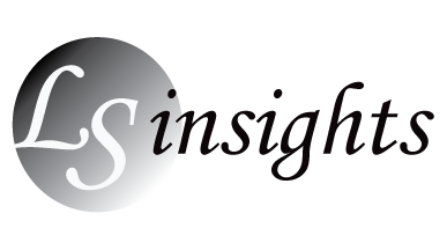
As we enter post-pandemic life and many return to their offices, even if just a few days a week, it’s time to restore our observational powers. In looking back at my years working for others, being conscious of what was happening around me – with colleagues, superiors and friends – brought many career and other benefits that I want to share. Much of this is obvious but not always appreciated for its impact on our success.
Reading the Room
I gleaned so much from observing how those around me operated, especially in meetings. How thoughts were formulated and conveyed could be either powerful or fall flat – it was very evident. Those that were most effective tended to speak clearly, cogently and with evidence, and most importantly, in a measured way and without excessive emotion. For most of us, this is a learned skill that takes intentional practice.
I found it’s best not to waste people’s time with stupid banter during a meeting, but that banter is still important to connect folks before or at the end of a meeting. Thinking before reacting continues to be a golden rule in meetings (although I can definitely be accused of not always doing that).
What makes zoom meetings so tough is the difficulty of reading the room, which is then made impossible when individual cameras are turned off. I am reminded of an instance during the Bush Administration when a political appointee was on the phone to a room full of in-person folks. She was trying to impose a policy change that made no sense to those present. She kept pushing her view and failed to pick up the negative reactions. The whole meeting was a bust — she ruined her reputation and was soon booted out of her job. Her inability to read a room – even when she was present – was what led to her demise.
Advice for those in a new position
I came into the U.S. Government as a Presidential Management Fellow, meaning (at the time) that we were encouraged to rotate to different offices during our first two years of government. I learned after the first rotation the importance of easing into a new position.
In grad school, we were advised to come in blazing to a new job to make a strong and positive impression. Wrong! I found being too eager to be off putting to those who have been toiling in an office or team, and they rarely appreciate eager young things coming in too gung-ho.
Instead, what works best is approaching a new position humbly. Being enthusiastic about a new opportunity is fine, but co-workers tend to prefer a more low-key approach from new folks. Rather than rushing to impress, it’s best to be in a learning and deferential mode. I found it extremely helpful to keep my eyes and ears open for how people interact with each other and observe the pace and culture of the office’s operating style. This can avoid creating a bad first impression, which is hard to overcome.
Social Cues
To this day, I feel guilty about an interchange I had with an African American friend years ago. She and I were having lunch together, and she told me how uncomfortable she felt when we walked into the restaurant and felt everyone staring at her. I must digress and point out that she was a gorgeous woman. My reaction was that people were staring at her because she is stunning, not because she is black. I had thought I was making her feel better but I now know that I discounted her feeling and failed to engage in what could have been a helpful discussion for both of us. I no longer am in touch with her, but I’ve thought of her a lot in the past year of BLM discussions.
Another key to success is being sensitive to how best to interact with individuals in a way that they respond to. I found that for the administrative staff I worked with, taking the time to ask them about their weekend or their families before delving into my request was the best way for them to feel seen and me to get what I needed. For others who were extremely busy and not in the mood for chitchat, I learned to dive immediately into what I was there for. Distinguishing what is needed in each circumstance is a process, like building muscle strength through focused effort and time.
Imprinting Observations
So many people I know are either starting new jobs or internships or moving into new roles in the Biden Administration. I hope folks take the time to really examine interchanges that they are a part of. Take note of what is effective in how people communicate in meetings – whether one-on-one or larger meetings. Consider how those that impress pace themselves, how much they use humor or a smile, and most importantly, how others react and how their comments affect the discussion.
It’s equally valuable to recognize and remember what doesn’t work. It’s for this reason that few people would want to go back to their younger self without the accompanying life lessons they’ve accumulated. Honing one’s observational powers builds these lessons, which hopefully will deliver benefits in the future.
The point of this blog is to encourage interaction, not to intimidate. Participation makes a mark, especially if built on best practices. It bugged me when I would send someone to represent my team at a meeting and they didn’t vocalize our perspective on an issue. That was a waste. So, for those who are shy about speaking up, my advice is to prepare and be ready to weigh in at the appropriate time. It’s important to be seen and heard!
Please share your thoughts. I’d love to know views on what is expected as we emerge out of Covid-19 and into a new normal.
Recommended listens:
Fareed Zakaria interview on our post-pandemic world, with interesting insights on the importance of human interactions.
Podcast interview with Esther Perel on the complexities of trust, power and people pleasing, especially in the work world.


Great advice and perspective, as usual!
Such good advice and sensitive introspection
Great perspective for both seasoned workers and for those just starting out.